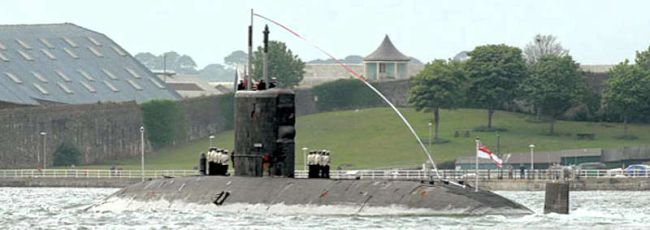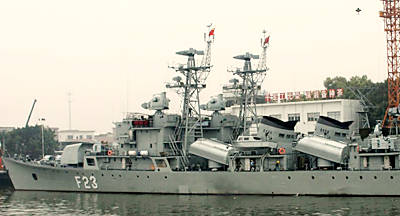WASHINGTON, June 21, 2011 — Elite commandos from 19 countries are participating this week in Fuerzas Comando 2011, a demanding counterterrorism and special operations skills competition sponsored by U.S. Southern Command to promote military-to-military relationships, increased interoperability and improved regional security.
The competitors, from throughout Central and South America and the Caribbean, are taking part in the eighth annual competition that kicked off June 15 and continues through June 23 in Ilopango, El Salvador, said Air Force Maj. Brett Phillips, the lead Fuerzas Comando planner for U.S. Special Operations Command South.
The El Salvadoran military is hosting this year’s exercise, with participants from Bahamas, Belize, Brazil, Chile, Colombia, Costa Rica, Dominican Republic, Ecuador, El Salvador, Guatemala, Honduras, Nicaragua, Paraguay, Panama, Peru, Trinidad and Tobago, Uruguay and the United States.
The competition consists of sniper, assault, physical fitness, strength and endurance events that challenge commandos psychologically as well as physically, Phillips said.
Among this year’s events is a timed 18.8‑kilometer forced march, with six-man teams from each country carrying 30-pound rucksacks and rifles, and a series of sniper competitions that include target acquisition, range estimation and night shooting events.
The competitive events wrap up today, to be followed with a combined airborne operation tomorrow and exchange of wings before the closing ceremony.
While special operators test out their tactical skills, a concurrent senior-leader seminar is providing a strategic-level focus to security challenges and possible solutions.
Twenty-four nations have sent a senior special operations officer, typically the brigade-level commander of the country’s commando team, and a ministerial-level policymaker associated with the country’s counterterrorism policies, procedures and strategies, to participate in the two-day distinguished visitor program, Phillips said.
“That’s when they talk about the regional counterterrorism projects and programs that are in place, they talk about trans-national threats, they talk about illicit trafficking and how to combat that,” he said. “That is where you are addressing those strategic-level thought processes and objectives.”
Phillips called this two-part approach key to fostering relationships throughout the ranks that pay off in closer regional cooperation, enhanced mutual trust and increased military interoperability as it advances the counter-terrorism training and readiness of participating special operations forces.
“It’s the strategic level, with the commanders and strategic thinkers from that country, all the way down to the tactical level, where the teams that go and break down the doors and go save people, or, depending upon their requirement, they eliminate a threat,” he said.
There’s another dimension to Fuerzas Comando as well. As commandos compete and their leaders convene, staff members from each participating country are operating as a combined staff, providing administrative, logistical, medical, communications and other support.
This, Phillips explained, gives the staffs experience they would need to work together during a real-world contingency.
While Fuerzas Comando has sparked some healthy competition among participants, “the camaraderie and the fraternity between these teams from all these different countries has been just exceptional,” he said.
When the commandos aren’t competing, they share their operational experiences and ideas with other teams and compare different tactics, techniques and procedures. This promotes cooperation and learning, along with a better understanding of how different countries’ militaries operate, Phillips said.
It also lays a foundation for relationships, he said, that could have a big payoff in the future as commandos advance to increasingly responsible positions within their respective militaries.
“Now, if there is a conflict,” he added, “it is a lot more likely that the conflict will be resolved between two chiefs of staff who know each other, who have had a relationship on a personal side as well as professional, and they can resolve their problems in a more practical manner than resorting to armed conflict.”
Phillips said he’s seen past competitors who’d risen through the ranks return to Fuerzas Comando as senior military commanders or government officials to participate in the strategic-level distinguished visitor forum.
“That’s our dream that we are seeing realized,” Phillips said. “These younger team leads from years ago are now growing in rank and position and soon will be able to pick up the phone and talk to Juan or Jose or Jorge or whoever that they competed against 10, 15 years ago as a team member,” and bring the benefit of shared operational expertise to strategic-level conversations.
Phillips said he’s also encouraged by the growth of the Fuerzas Comando, which began in 2004 with 13 countries.
“It just grows and gets better every year,” he said.
U.S. Navy Rear Adm. Thomas L. Brown II, commander of Special Operations Command South, thanked participants during the opening ceremonies at El Salvador’s Special Counterterrorism Command special operations center for the dedication they have brought to the competition and to regional security.
“You represent the world’s finest warriors, sacrificing daily to defend and protect the freedom and security of the citizens of the Western Hemisphere,” the admiral told the participants.
Source:
U.S. Department of Defense
Office of the Assistant Secretary of Defense (Public Affairs)

 von
von 

